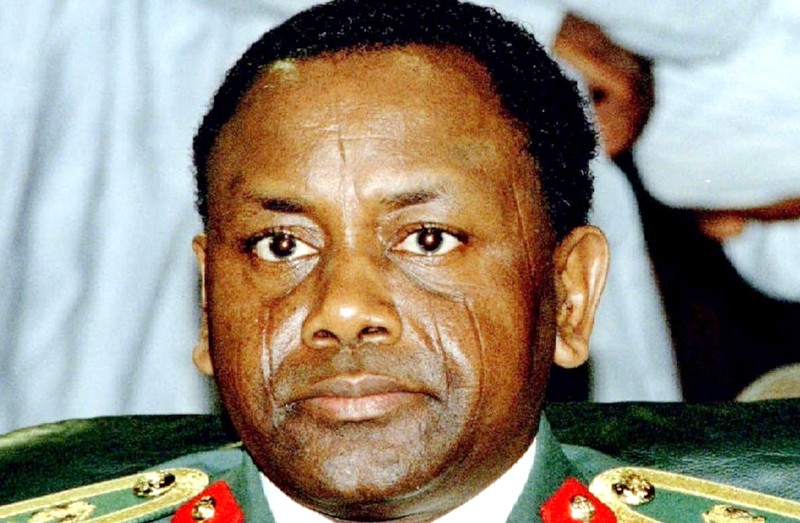Ralph Bello-Fadile, a retired colonel of the Nigerian Army, has confirmed that there was a failed attempt to topple the regime of former Head of State, Sani Abacha, in 1995.
Bello-Fadile was a principal actor in what was widely regarded as the 1995 “phantom coup” against Abacha.
However, in his just-published book, Bello-Fadile revealed that it was not a conspiracy. Instead, he said, he and other military officers dreamed of a democratic Nigeria, so they planned to displace the government of the day in 1995.
The book is a memoir, titled ‘Nine Lives: The Bello-Fadile Memoirs,’ reflecting on Bello-Fadile’s early life, his service in the Nigerian military, and his close shave with death at various times.
The book was published by Premium Times Books and was presented to the public on Monday in Abuja.
In the book, Bello-Fadile chronicled how he was arrested, tried, and sentenced to death in the 1995 tragic saga that implicated dozens of prominent Nigerians, including Olusegun Obasanjo (a military general and former military Head of State who would later be elected the first president under the current dispensation), his erstwhile deputy, Shehu Yar’Adua, a retired major-general who died in Abakaliki prison and Lawan Gwadabe, a retired brigadier general.
The book comes almost 30 years after the 1995 ‘attempt’ against Abacha.
On page 227 of the book, Bello-Fadile opens Chapter Four of the memoir with this reflection: “Knowing the immense danger that lay ahead of daring to dream of a democratic Nigeria during my time in the Armed Forces of the Federal Republic of Nigeria, I did it all the same,” Bello-Fadile said, the first confirmation that he was part of an attempted coup.
“I conquered every fear of failure with high spirits and earnest belief in the opportunities that come with true democracy,” he said, noting that, “The journey towards realising this dream was fraught with perilous twists and turns, leading to a destination I never foresaw.”
Bello-Fadile describes the 1995 ‘coup’ as ‘The Enterprise’. He provides rare insights as he recounts how he was “handcuffed and chained to a steel cabinet while standing” and how his fellow officer, Gwadabe, was “tortured almost to the point of death.”
Bello-Fadile was charged along with other officers. After facing a special military tribunal, he was found guilty of three charges including treason and was sentenced to death by firing squad in July 1995.
To further stress his role in the 1995 attempted coup, Bello-Fadile wrote: “Mobilising fellow officers to advocate and work for the return of Nigeria to civilian rule was both exhilarating and terrifying. I felt the weight of responsibility on my shoulders, knowing that the path I chose could alter the course of our nation’s history.”
Bello-Fadile was one of the political prisoners released by former Head of State Abdulsalam Abubakar in 1999, after the death of Abacha.
According to a 1995 BBC World Service report, the coup was supposed to take place on 1 March 1995 during the Eid-el Fitri festival.
In the memoir, Bello-Fadile noted the intrigue, treachery, and false accusations he faced during that period. Some of the people who played negative roles in that episode, by his account, include Felix Mujakperuo, a retired major general, who is now the chairman of Delta State Council of Traditional Rulers and the Orodje of Okpe Kingdom, and Hamza Al-Mustapha, the chief security officer to Abacha, who regularly invited top traditional rulers in the country to watch ‘coup videos’ with hefty envelopes as ‘pop corns’.
But he also remembers with glowing admiration on page 340, the late Beko Ransome-Kuti whose fax message to London, received by then British Prime Minister, John Major, may have saved him and other convicts from being executed by Mr Abacha.
Bello-Fadile was removed from the death sentence and served his prison sentence in Argungu, Kebbi State. He also believes that he was saved by the “Mysteries of the Rosary.”
Shortly before his arrest on 26 February 1995, Bello-Fadile had drafted a speech about the coup, but he was probably alive today because the speech was never seen.
In his words: “The Most Blessed Virgin Mary, Mother of God heard my prayers and the draft speech was never seen. Three different searches were conducted on my house but the draft speech was never seen,” he wrote on page 262.
Bello-Fadile had several brushes with death while serving in the army. He recalled that on 26 September 1992, a Nigeria Airforce (NAF) C-130 Hercules aircraft crashed three minutes after take-off in Lagos, killing all 159 military officers (151 Nigerians, 5 Ghanaians, 1 Tanzanian, 1 Zimbabwean and 1 Ugandan) on board. By his account, Bello-Fadile would have been on the flight.
There were several other instances where he cheated death by a whisker, which is why the book was titled ‘Nine Lives.’
The book was published by Premium Times Books, the book publishing arm of the Premium Times Group.
At a public presentation Bello-Fadile’s book on Monday, Musikilu Mojeed, the editor-in-chief of PREMIUM TIMES, said Premium Times Books is on a mission to keep publishing books that continually “deepen knowledge on important aspects of our lives, and which continue to serve as crucial resources for engaging with our histories and experiences.”
“We intend to keep at this role and will continue to offer our services to major documenters and interpreters of experience like Dr. Bello-Fadile, as he does the unprecedented and embarks on his tenth life.”
Culled from The PREMIUM TIMES






